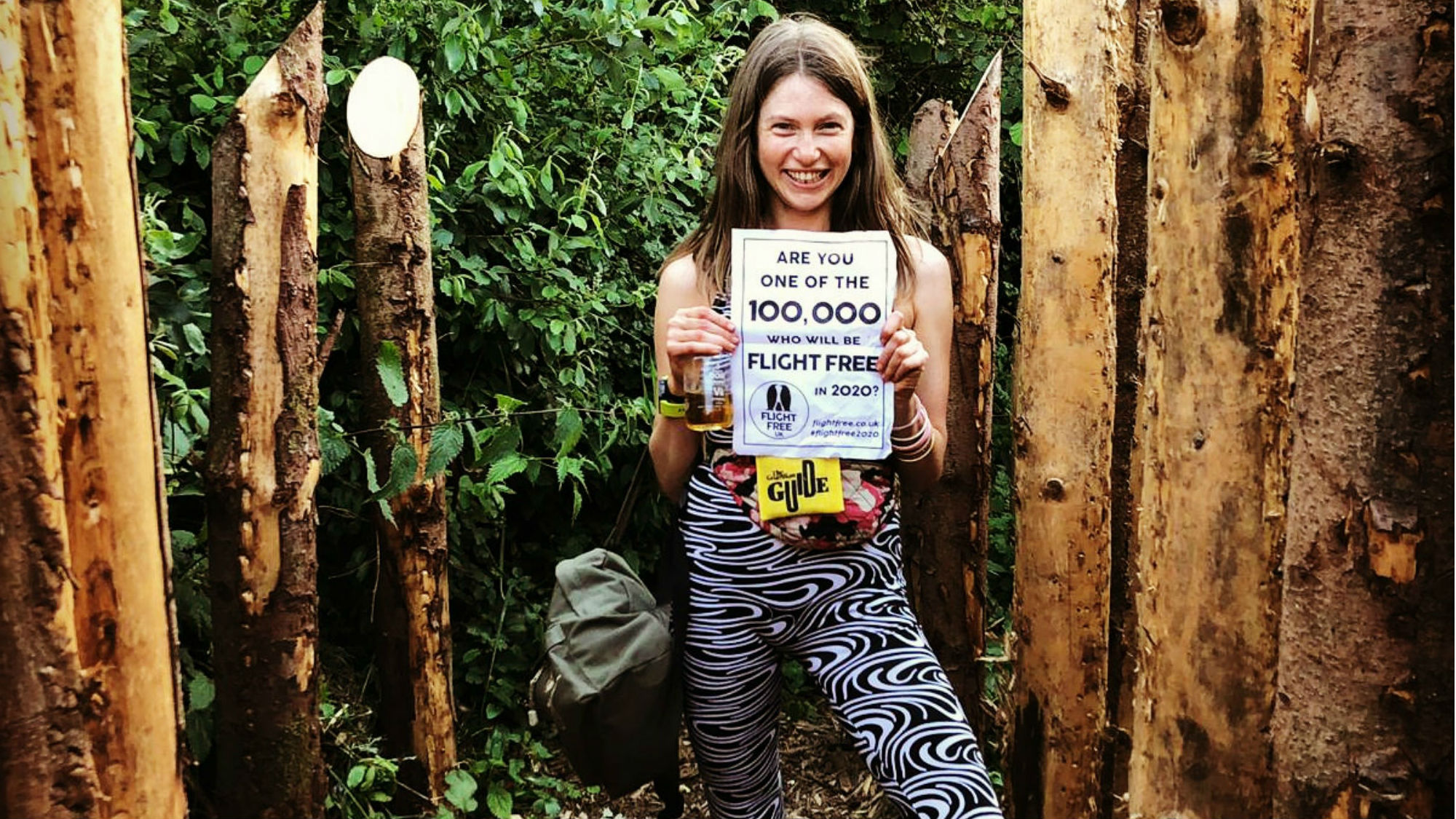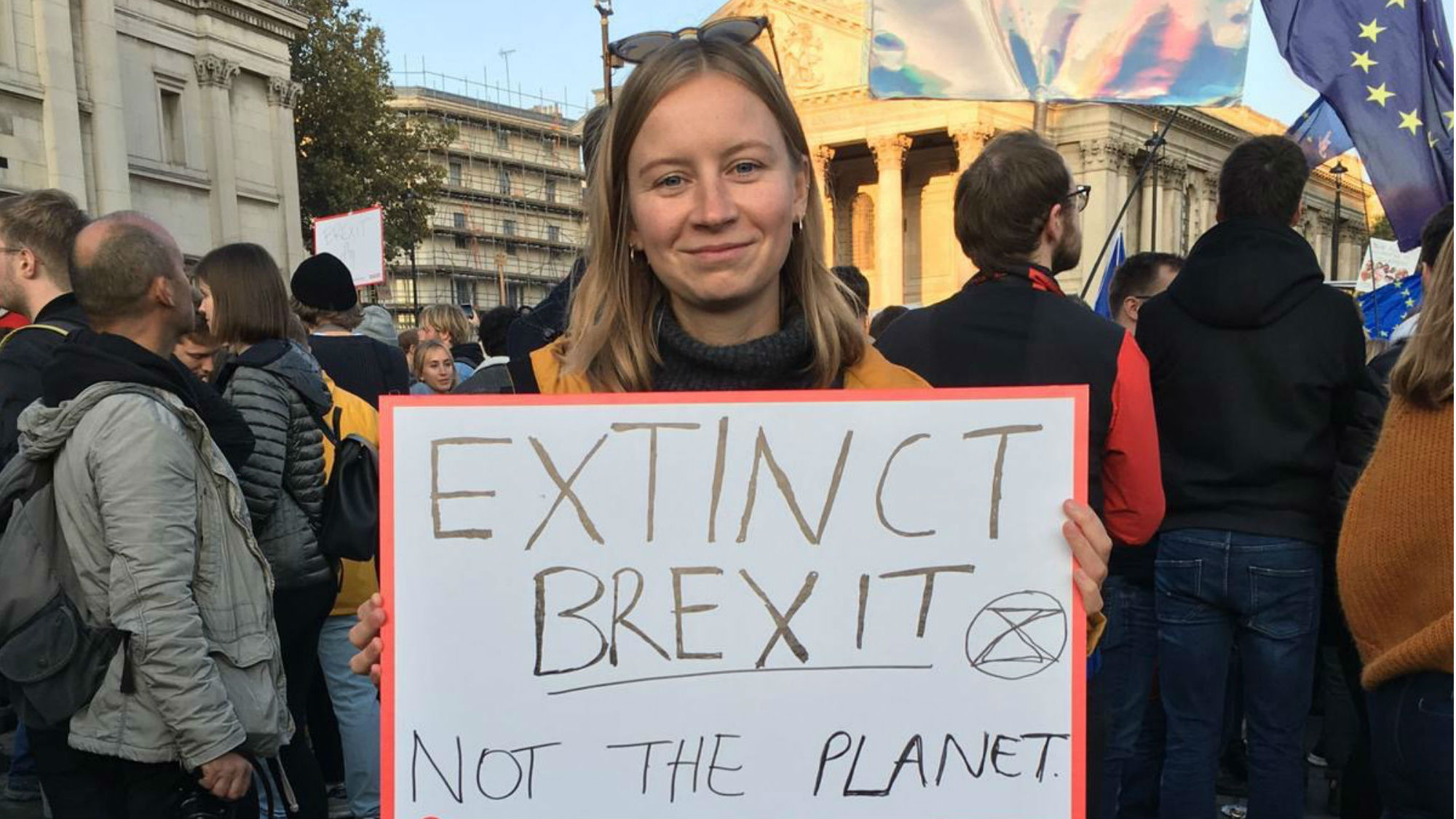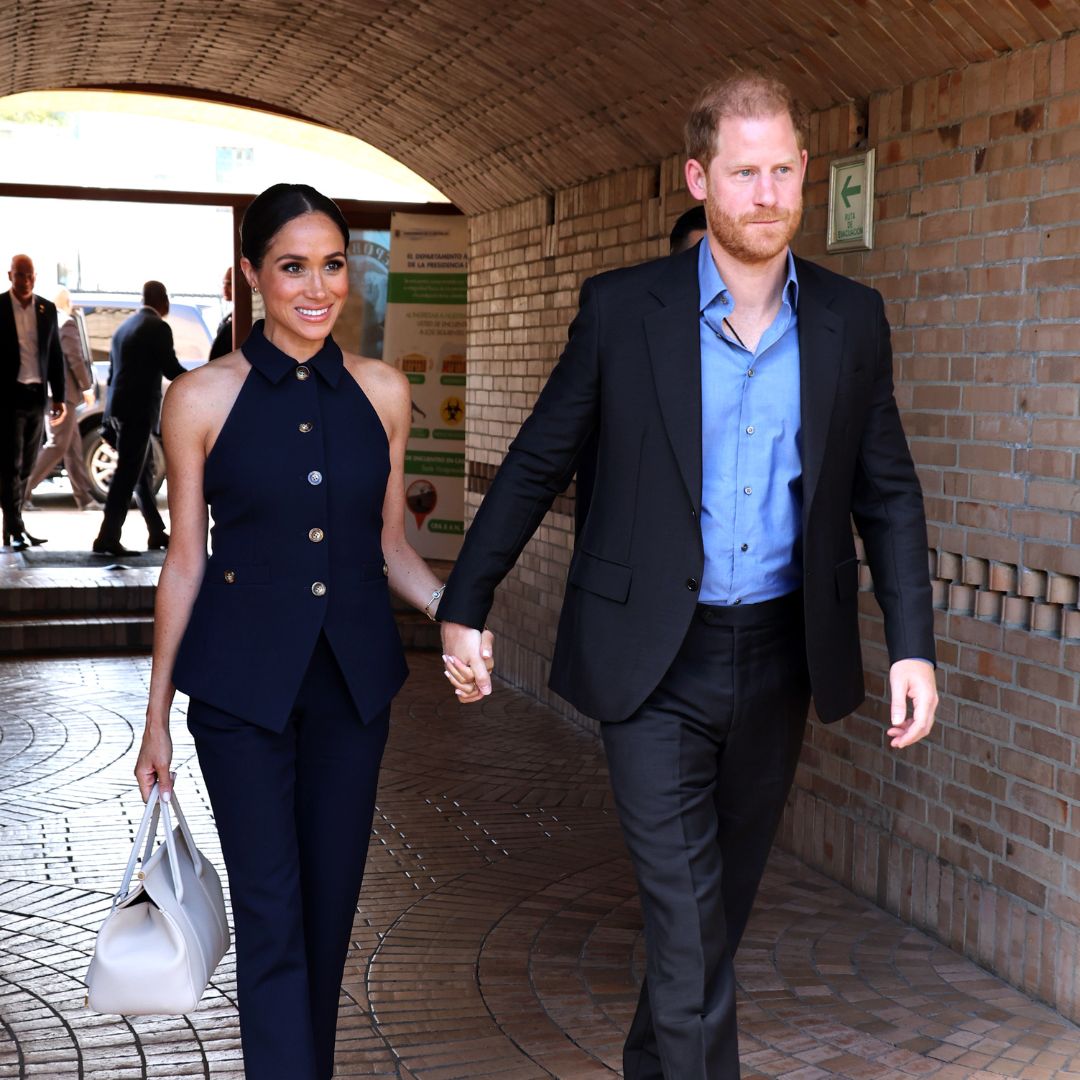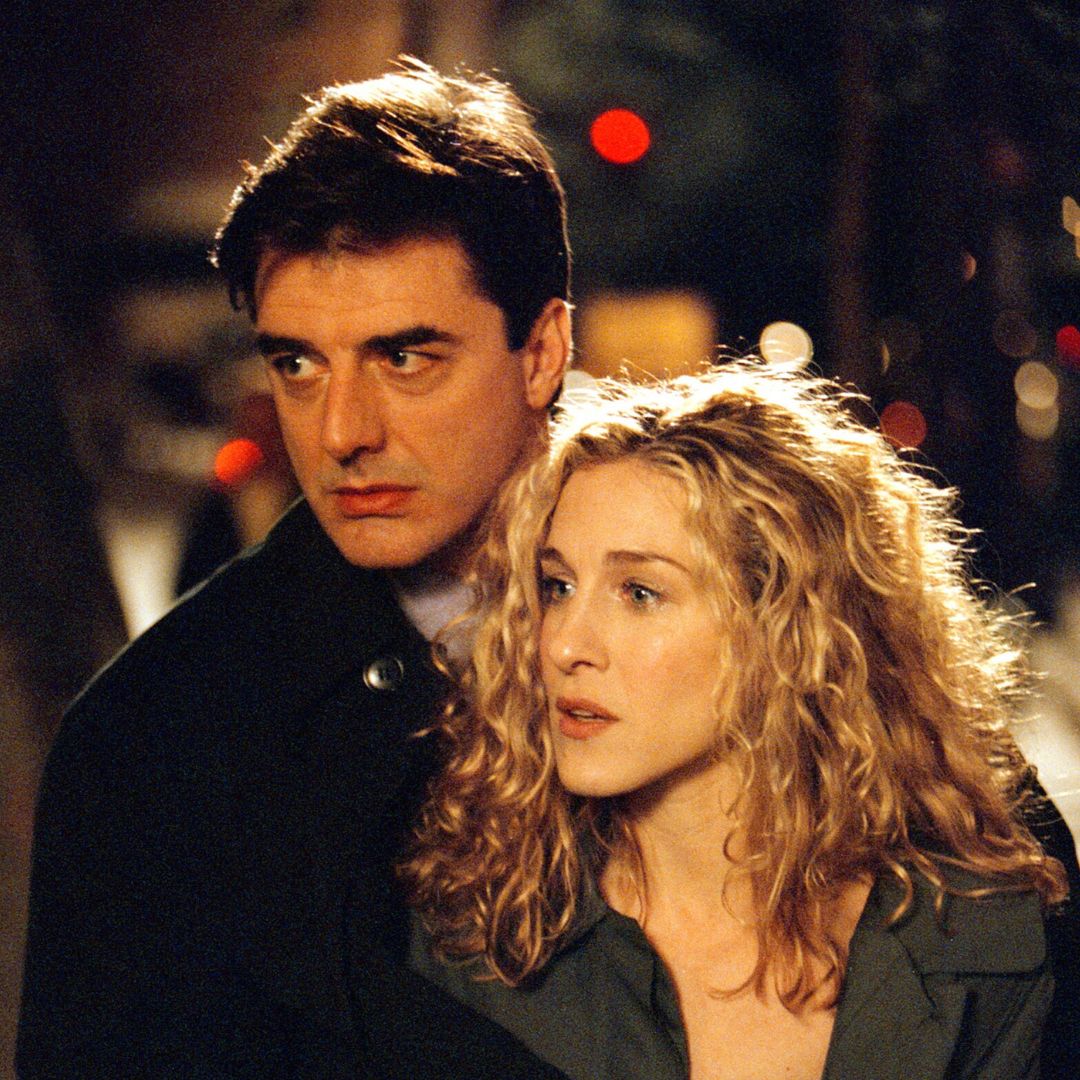As new stats show that green jobs are on the rise - we speak to two women who swapped corporate lives for sustainable careers
Pippi Durie and Amy Luck quit their city jobs to devote their lives to environmental passion projects – and urge us to follow their new pollution-free paths


Sofia Piza
It's no news that the planet is in a state of emergency. While efforts are being made to reduce global emissions, we're still on track to increase global temperatures by at least 3°C by the end of the century – twice what climate experts have warned is the limit to avoid severe economic, social and environmental consequences. The reality is inescapable unless the world acts fast.
But it's not all bad. Increasingly, people are thinking about the environment when it comes to their home lives, living environments, and even jobs. Encouragingly, new exclusive research from Linkedin shared with Marie Claire UK reveals that one in four Brits consider a company’s environmental practices a top priority when applying for jobs.
Similarly, sustainable practice is increasingly at the forefront of people's minds, with many reconsidering their careers. The data also showed that "green jobs" - that is, jobs that focus solely on sustainability - make up 22% of searches on LinkedIn and a third of UK job postings between 2022 and 2023.
Exclusive data from LinkedIn highlights that "green jobs" - that is, jobs that focus solely on sustainability - made up 22% of searches on the site and a third of UK job postings between 2022 and 2023.
This wasn't the case in 2020, though it didn't deter Pippi Durie and Amy Luck. While there were far fewer sustainable jobs on the market or positions that enabled them to make the positive change they longed for, transitioning into a more sustainable-focused role was crucial for them to feel fulfilled - which is why they quit their full-time corporate jobs to work in the sustainability sector.
For five years, Pippi Durie, 31, was a high-earning investment banker for Barclays in London. After becoming increasingly concerned about environmental issues, she handed in her notice in September 2019, applying for an environmental policy master's degree and volunteering for the Flight Free campaign. She hopes this will lead her to work in a green think tank.
Amy Luck, 30, quit her job as a corporate public relations manager and joined forces with two friends to create a #NoBeef campaign, which highlights the evidence that omitting beef from your diet results in 95% less greenhouse gas emissions, 85% less water usage and 95% less land burden. Amy also researched land use for Imperial College London, worked part-time on a climate change film, and worked closely with Extinction Rebellion to demand politicians go further and faster.
Interestingly, LinkedIn’s new findings point to an emerging "green ceiling" - that is, a widening gender gap in green skills. Nine in ten women lack a single green skill or green work experience (compared to 16% of men). That said, to help more professionals develop their green skills and land a green job, LinkedIn has unlocked a series of free LinkedIn learning courses, including green jobs for sustainable careers and how to get a job in climate.
Marie Claire Newsletter
Celebrity news, beauty, fashion advice, and fascinating features, delivered straight to your inbox!
Why is this relevant now? Well, with COP28 currently taking place, climate change is likely to be front of mind and inspire many to reconsider their careers. What these women are doing is important. Keep reading to hear their stories.
Green careers are on the rise - here, two women share their stories of switching from the corporate world to sustainable career paths
Pippi: "I quit my job to volunteer for Flight Free"
Working an 8 am to 7 pm job as an investment banker was super challenging, but I didn’t feel fulfilled because I didn’t see an end goal. I wasn’t working towards anything apart from having more money.
I wanted to spend my time helping the planet and those affected by the climate crisis rather than going through the motions of a numbers-based job. I was at an age where I didn't have anyone dependent on me, so thought, if I’m going to do it, now is the time.
So I took a leap of faith and handed my notice in. It was an anxious time for me because I had applied to do a master's degree in environmental sciences at King’s College London, but I didn’t know if I’d get in until after I quit.
I started the year-long course in September 2019 - it's called Environment Politics and Globalisation and I studied three days a week. It was weird going back to learning. I remember sitting in a lecture hall at Newcastle University for my post grad and not really taking it in. Fast forward, and I really wanted to learn - I’d gone from writing emails to writing 2,000-word essays. I got a student loan that covered the course fees, but nothing for living, so moved into my boyfriend’s room to halve my rent. For income, I waitressed at a restaurant and helped with events for a catering company.
I adapted to not having disposable income – it just meant being able to afford less. I didn't go out for dinner as much and I bought second-hand clothes. It’s strange - I went from having no time and lots of money, to lots of time and less money. But it made me appreciate my time a lot more in the day. I was able to attend long yoga classes and read books.
Extinction Rebellion has played a big part in my interest in the climate crisis. I first went to the protests in October 2019 and I’ve been to some meetings since. I was also a volunteer for the Flight Free campaign. As I became more interested in the climate crisis, I started to consider my own carbon footprint and found that flying is terrible for the planet (plane engines emit noise and gases, such as carbon dioxide, which contribute to global heating). I discovered this campaign and emailed them, asking if I could help. I created content for their social media platforms and reached out to charity groups asking if they would sign up for the campaign.
My parents were slightly apprehensive when I told them I wanted to quit my job, as I had a career as well as financial security. But I don’t regret leaving the corporate world at all, and I don’t see my life change as a sacrifice. I appreciate the opportunity I have to try to help the planet.

Amy: "My No Beef campaign is helping reduce our impact on the planet"
I’d always loved nature, animals and conservation, but I couldn’t see a way to make it my career after I graduated from Birmingham University, having read biological sciences with zoology, in 2014.
Instead, I got a job as a headhunter, as the job allowed me to live and work in London with my friends. I learnt how to stand up for myself but it was a corporate world, and not personally satisfying at all. I moved on to a role in public relations, selling for brands like Cadbury on the consumer side, but it didn’t take long for me to realise the role was meaningless to me. I moved to the health and tech side of the company but still felt underwhelmed and depressed by it all, so I handed in my notice after six months.
I thought I'd landed my dream job at The Wellcome Trust, a global health charity, as there was an opportunity to complete a graduate programme while working. I was fortunate enough to travel to Africa and South America with the vaccines team, and during this time I learnt more and more about the growing impact of climate change, and how it was affecting people all over the world.
I left to do a master's degree in Public and Global Health at the end of 2017. I was desperate to try to find a way to help more people. But rather than rushing into another job once the year was complete in October 2018, I decided to get some headspace for a month and think about how I could help the climate crisis with my skills so far. I decided to do the Camino de Santiago - a pilgrimage route across France and Spain. Today, people do it to have a break from life, while still having purpose – I walked 30km every day.
When I came back to London, I met up with a friend, Matthew Shribman, who told me he was thinking of starting a campaign around beef. We sat down and came up with the concept of the #NoBeef campaign. We wanted to come up with a way that people could feel like they were doing something positive for the planet, and ditching beef is the single biggest way to reduce your impact.
We then decided to target universities and schools, asking them to drop beef and lamb (sheep grazing also contributes to greenhouse gas emissions) from their menus. We are trying to create a student ambassador network, inspiring young people to take the campaign to those in charge and persuade them to stop supplying it, as their voices are more impactful than ours - The University of Cambridge’s central catering team agreed to reduce the beef and lamb they sell.
#NoBeef is entirely voluntary, and we recently set up an umbrella organisation to sit on top of the campaign, called Planet A. We held an event in October 2019 as part of the London Extinction Rebellion protests, and allocated a tree to every British MP, to try to get them to commit to reforesting and environmental targets. I've found being part of the Extinction Rebellion protests comforting because you are around like-minded people who want to make the same changes. We are just concerned, passionate people who want the government to listen.
My family supports my involvement with Extinction Rebellion, but I’ve definitely been mocked along the way. My friends can sometimes think I'm judging their lifestyles, but I'm not. For me, it's important to make individual lifestyle changes to limit my impact on the planet (changing my diet to mainly vegan, avoiding fast fashion and opting for greener modes of transport), but I don't expect everyone to be able to do so to this extent. If everyone in the world makes even the smallest lifestyle change, it sends a strong message to those in power that unanimously we all want a positive future for the planet. Ultimately, it is the politicians who need to make the biggest changes to protect our planet, not the individual.

To help more professionals develop their green skills and land a green job, LinkedIn has unlocked a series of free LinkedIn Learning courses, including Green Jobs for Sustainable Careers and How to Get a Job in Climate.

Ally Head is Marie Claire UK's Senior Health and Sustainability Editor, nine-time marathoner, and Boston Qualifying runner. Day-to-day, she heads up all strategy for her pillars, working across commissioning, features, and e-commerce, reporting on the latest health updates, writing the must-read wellness content, and rounding up the genuinely sustainable and squat-proof gym leggings worth *adding to basket*. She also spearheads the brand's annual Women in Sport covers, interviewing and shooting the likes of Mary Earps, Millie Bright, Daryll Neita, and Lavaia Nielsen. She's won a BSME for her sustainability work, regularly hosts panels and presents for events like the Sustainability Awards, and is a stickler for a strong stat, too, seeing over nine million total impressions on the January 2023 Wellness Issue she oversaw. Follow Ally on Instagram for more or get in touch.
- Sofia PizaFashion Writer
-
 Prince Harry's "proud" words about wife Meghan Markle are going viral
Prince Harry's "proud" words about wife Meghan Markle are going viralBy Jenny Proudfoot
-
 Sources have opened up about Timothée Chalamet and Kylie Jenner's "intense" start to the year
Sources have opened up about Timothée Chalamet and Kylie Jenner's "intense" start to the yearBy Jenny Proudfoot
-
 Two Hollywood actresses were offered the role of Carrie Bradshaw before Sarah Jessica Parker
Two Hollywood actresses were offered the role of Carrie Bradshaw before Sarah Jessica ParkerBy Jenny Proudfoot